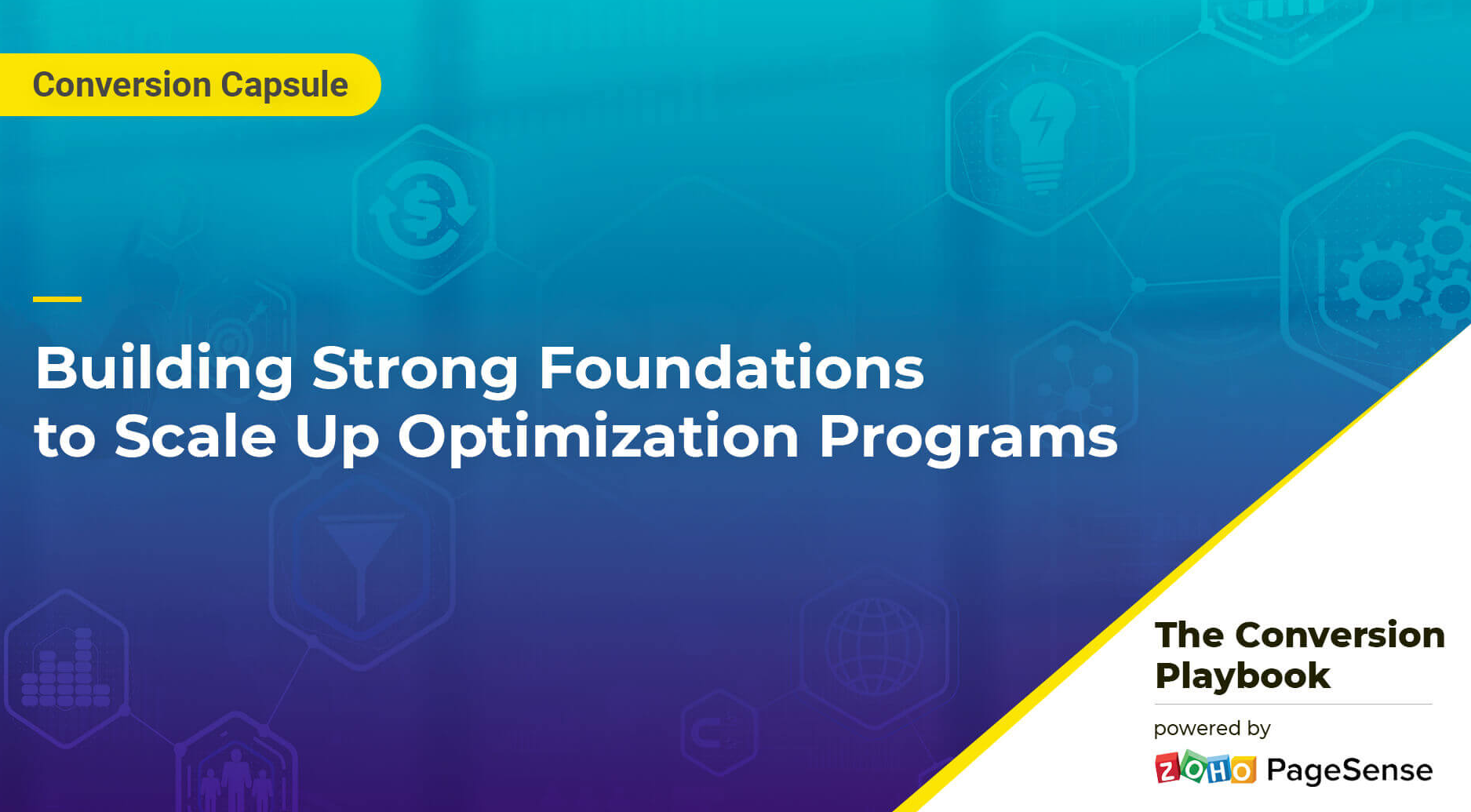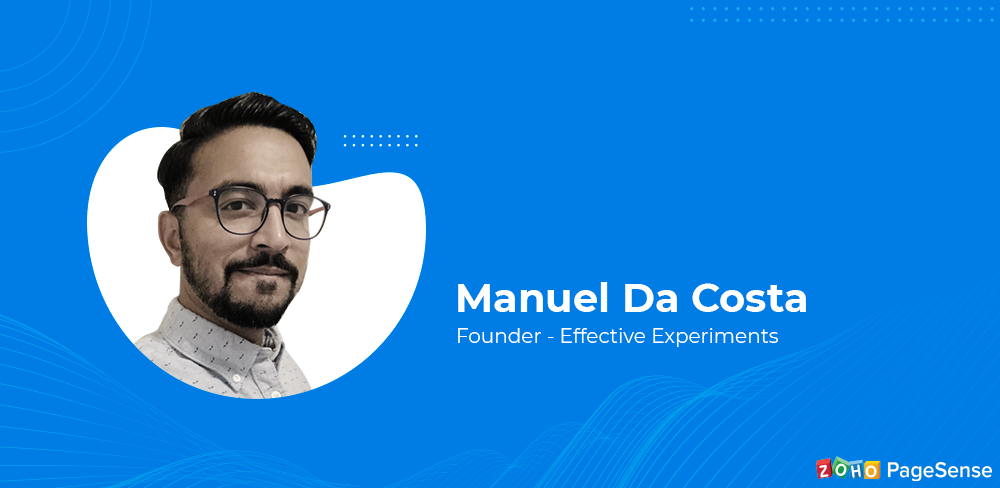- HOME
- Building strong foundations to scale up optimization programs
Building strong foundations to scale up optimization programs
- Last Updated : November 10, 2023
- 447 Views
- 4 Min Read

According to you, what is a successful experimentation program? Running 20 tests a year? 50? 500?
Well, the number of experiments you run has no bearing on the success of your testing program. Success is when everyone in the business understands the value of experimentation and recognizes the benefits it brings to the business.
Moreover, real success is when optimizers are valued as leaders and advisors, and not just as cogs in the marketing machine. They should be trusted by the stakeholders and seen as an integral part of the business.
So, how do you achieve something like this?
This blog will explain the building blocks of a strong CRO program that engages everyone in the organization to become passionate advocates for testing.
Effective Experiments has actively worked with various companies around the world and has conducted research to understand what separates successful experimentation teams from the average ones. All of this has boiled down to one intriguing concept: the CAVE Framework.

Collaboration
Before your put out your test results, bear in mind that everyone at the receiving end of your email has their own agenda, KPIs, and goals. So unless they understand how your work ties in with their goals and KPIs they're not going to care about what you do. Of course they'll glace through your reports, but they'll probably forget all about it in the next few minutes.
The key principle you need to understand here is that everyone is thinking, "What's in it for me?"
And that's why you should always start off with how your work impacts theirs.
There's a popular saying that goes like this: "Tell me, and I will forget. Show me, and I may remember. Involve me, and I will understand."
Engage and educate your stakeholders through a practical setting like a testing hackathon. It'll help them understand what goes on in experimentation, how you contribute to it, and how it impacts the business.
Make them a part of your world; otherwise, no matter how great your presentations are, you're going to be greeted with ambivalence over time.
Accountability
Documenting your work may seem slow, but it pays dividends. Documentation is important because if you don't do it right now, a hundred experiments later you'll be wondering why you haven't done it.
The best time to set up the systems and processes was yesterday. The second best time is right now. So make sure that everyone follows a systematized process. If not, you'll get hit with something called the "paradox of growth."
Very often, as you scale up, the inefficient systems will slow you down. This is why accountability and process are critical. They allow you to create governance and make sure that everyone sings from the same hymn sheet.
The concept of accountability may sound boring and tedious, but ultimately it's what's going to separate your organization from the average testing teams out there.
Visibility
If you want your stakeholders to be enthusiastic about testing, you need to make them aware of testing.
Very often optimizers go about shouting from the rooftops, putting up dashboards, and sending out emails. But if your stakeholders don't have an understanding of CRO, they don't get the context of those reports. This is where visibility comes into play.
Tell them what you're testing, why you're testing, what outcome to expect, and how it'll change the course of the business. This way, you are democratizing the data.
So, now that they're a part of the process, your dashboards and road maps will never be ignored again.
Efficiency
Efficiency is the real game-changer of your optimization program.
It's natural that you want to run more tests and keep enhancing your site. After all, improvisation is in our DNA. But the question is, are you ready to improve your process as well? Now that you've set up your processes and structures, you should be focusing on the bottlenecks in that process.
If you're struggling to scale up from five experiments per month to ten experiments, what is slowing you down? Where are the bottlenecks?
If you don't know why experiments are getting stuck in certain stages you won't be able to optimize them.
Efficiency ultimately breeds predictability. So create predictable systems that enable you to scale up and become better at evangelizing your experiments.
Ultimately, what is a successful optimization program?
Conversion optimization is not rocket science. In fact, if put simply, it's nothing but business transformation. And that is why a framework like CAVE is essential. It enables you to build a testing program in a structured way with two goals in mind.
Scale up and grow
Evangelize and engage
Running an optimization program is not the same as managing a project. There are certain nuances that are unique to CRO. Putting together a well-planned foundation is important no matter what stage your CRO maturity is at. Strong foundations are gonna help you grow in the right direction and ensure that you remain relevant and an indispensable part of the organization. And that's when you will start to see success.
Conversion Capsule from ZohoPageSense aims to bring you conversion rate optimization best practices from CRO experts around the world. In this blog, we've converted Manuel Da Costa's session from "The Optimization Summit" we hosted, as digestible takeaways for you.

Manuel Da Costa is the founder of Effective Experiments, a SaaS platform that helps Conversion Optimization teams manage their workflow on a single end-to-end platform. He's passionate about optimization and consults various lead gen and ecommerce companies.